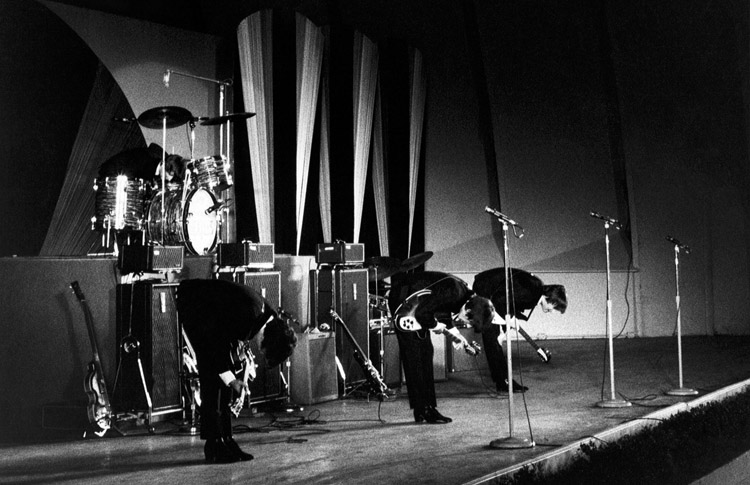
The disappointment among the fans was great when the Beatles announced after their concert on August 29, 1966 in the Candlestick Park of San Francisco that they would never again perform in public. But after four years spent mainly on stage and in recording studios, they had had enough - of the screaming fans who often drowned out vocals and instruments; of the struggle with the problems of not being able to perform their increasingly complex music adequately in stadiums or large halls due to limited technical possibilities; but above all of the death threats John Lennon was confronted with in the USA after his statement that the Beatles were bigger than Jesus.
How it came to this, Oscar-winning Ron Howard ("Rush", "Illuminati") followed in years of work. The result has been shown in cinemas since 15 September, but only "for a short time", as the announcement for "Eight Days A Week - The Touring Years" explicitly states. Could mean: This will be followed by worldwide marketing via DVD and Blu-ray. "We could take Super 8 footage that we had found but was shot without sound," says Howard. "We weren't able to digitally process all of it. But we found original sound recordings that we could mix with it. We were thus able to create a comprehensive and captivating concert feeling. I'm sure the audience will feel transported back to the sixties, what it was like at the time, what it felt like and what it must have sounded like. And for me as a director, that was a great challenge."
The fact that with "Live At The Hollywood Bowl" 17 titles from the three concerts in Los Angeles (23.8.1964, 29./30.8.1965) have accompanied the Howard documentary in impressive sound quality since 9 September is due to the work of producer Giles Martin, son of Beatles producer George Martin, and sound engineer Sam Okell. Although they have used the 13 tracks recorded on three tracks of the original LP released in 1977, like the four encores ("You Can't Do That", "I Want To Hold Your Hand", the Carl-Perkins cover "Everybody's Trying To Be My Baby" and "Baby's In Black") they have excellently, logically edited and remastered them with the latest technology. Giles Martin: "The technology has developed enormously since my father worked on the material many years ago. Today the clarity is much better, so that the immediacy and the agitated mood can be heard as well as never before. My father's words are still true, but what you can hear today is the unpolished energy of four friends playing in front of a crowd that idolizes the band. "You can't get much closer to the Hollywood Bowl event at the zenith of Beatlemania."


